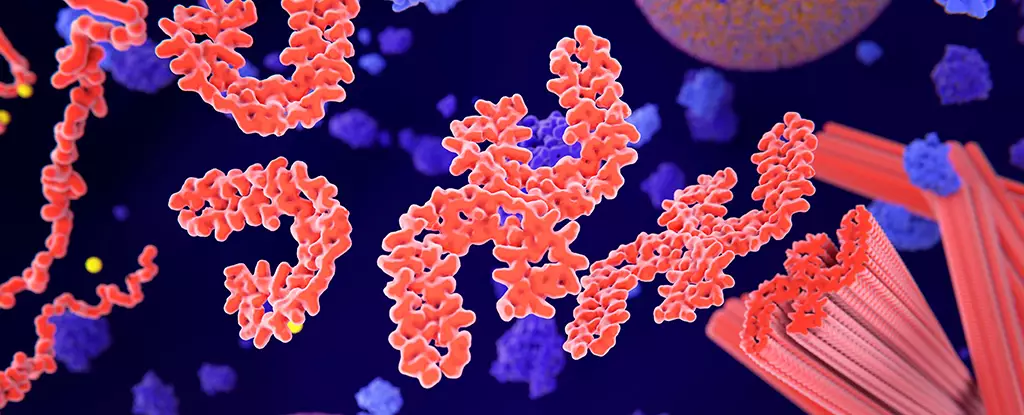Alzheimer’s disease presents a significant challenge in the realm of neurology, characterized by the detrimental formation of protein clumps and tangles that disrupt neuronal function. Recent research has offered a glimmer of hope with the development of a drug known as RI-AG03, which has demonstrated the potential to significantly mitigate the effects of this devastating condition. This article delves into the mechanisms of RI-AG03, its effectiveness in preliminary studies, and the implications for future Alzheimer’s treatments.
Alzheimer’s disease is marked by the accumulation of abnormal protein structures in the brain, primarily tau proteins. In healthy scenarios, tau proteins play a stabilizing role in neuron structure, but in Alzheimer’s, these proteins become hyper-phosphorylated and aggregate into twisted fibrils. This aberrant aggregation disrupts communication between neurons and leads to cell death. The challenge in creating effective treatments lies in the complexity of these protein interactions and the ensuing cascade of neurodegenerative processes.
RI-AG03 offers a targeted approach to this problem. Unlike traditional drugs that generally interact with multiple proteins, RI-AG03 specifically inhibits tau protein aggregation by blocking two key regions that foster the formation of these clumping fibrils. This dual-targeting capability not only enhances its effectiveness but also minimizes potential side effects associated with broader protein interference.
Initial tests involving fruit flies and human cell models have demonstrated RI-AG03’s ability to reduce neuron degeneration significantly. In particular, the lifespan of the fruit flies improved by approximately 35% when treated with the drug, indicating a robust neuroprotective effect. The research team, led by neuroscientist Amritpal Mudher from the University of Southampton, highlighted the groundbreaking nature of this approach, suggesting that it could lead to more effective therapies for various neurodegenerative diseases.
The specificity of RI-AG03’s design is vital; as highlighted by fellow neuroscientist Anthony Aggidis, existing aggregation inhibitors often yield numerous side effects due to their non-specific action. By narrowing the focus solely to tau proteins, RI-AG03 holds the promise of a more favorable safety profile, potentially making it a viable clinical option in the future.
The path to bringing RI-AG03 from the laboratory to clinical application is fraught with challenges, as is typical for drug development in the context of neurodegenerative diseases. Following successful results in in vitro and fruit fly models, the next phase involves testing on mice to evaluate the drug’s effectiveness in a mammalian system. Should these animal trials prove successful, the research team hopes to progress into human clinical trials.
Despite numerous tau-based therapies having shown promise in animal studies, many have failed to translate these benefits into clinical practice. Therefore, while the results of RI-AG03 are encouraging, they must be approached with cautious optimism.
If clinical trials validate the effectiveness of RI-AG03 in humans, it could represent a significant advancement in the fight against Alzheimer’s disease. The ability to inhibit tau aggregation selectively could change the landscape of therapeutic options for patients suffering from neurodegenerative conditions, offering not just symptomatic relief but potentially slowing disease progression.
Moreover, the methodology employed in developing RI-AG03 sets a precedent for future drug design efforts aimed at treating complex neurodegenerative diseases. The use of computational biology to engineer precise peptide inhibitors may inspire similar research initiatives, driving innovation in the search for effective treatments.
The development of RI-AG03 exemplifies the progress being made in the understanding and treatment of Alzheimer’s disease. With its unique targeting mechanism and promising initial results, it holds the potential to revolutionize future therapies. As research advances into clinical trials, the scientific community and countless individuals impacted by Alzheimer’s disease hope for a breakthrough that could alleviate suffering and improve quality of life. While challenges remain in translating these findings into successful therapies, RI-AG03 marks an important step toward addressing the urgent and growing epidemic of neurodegenerative diseases.


Leave a Reply